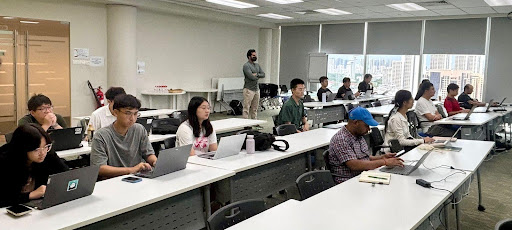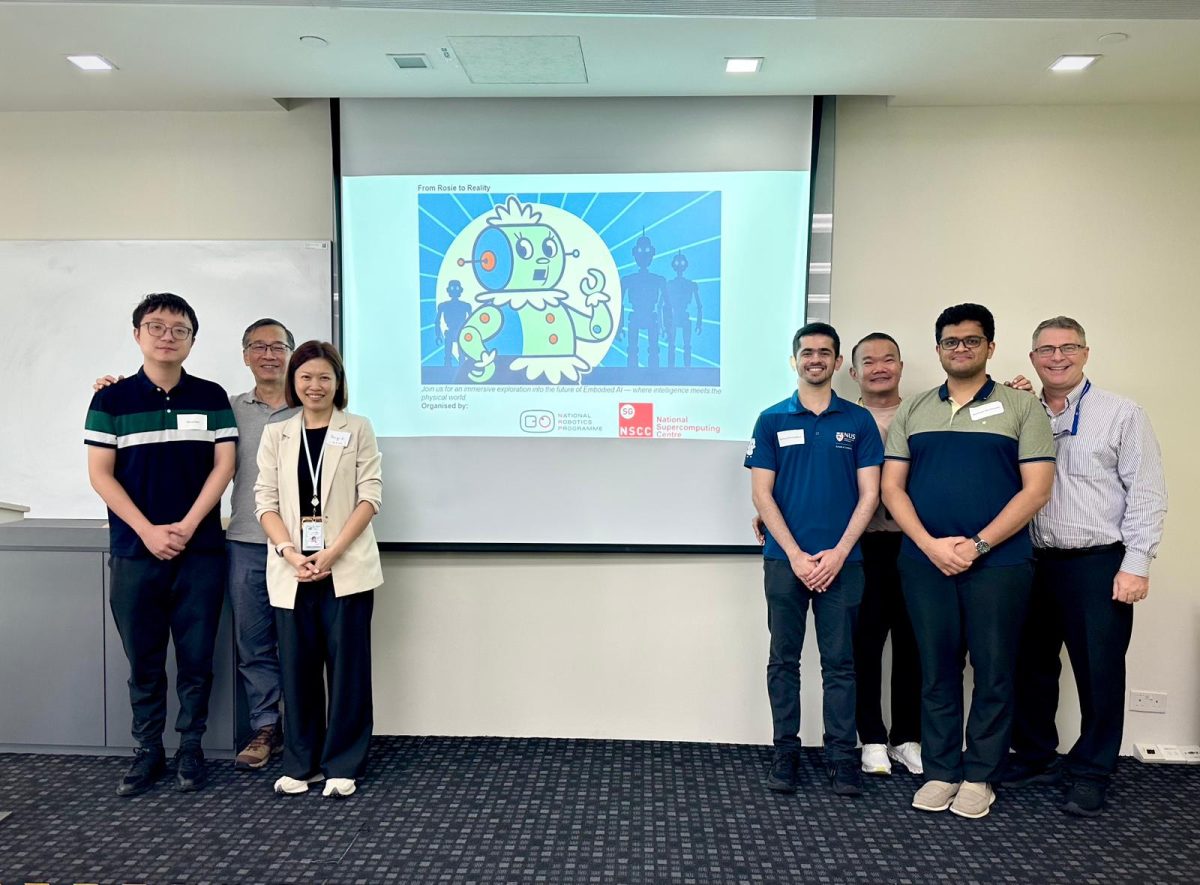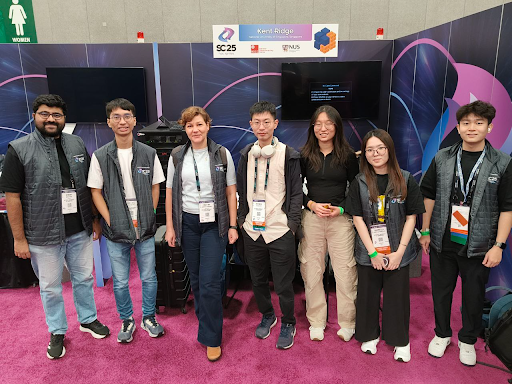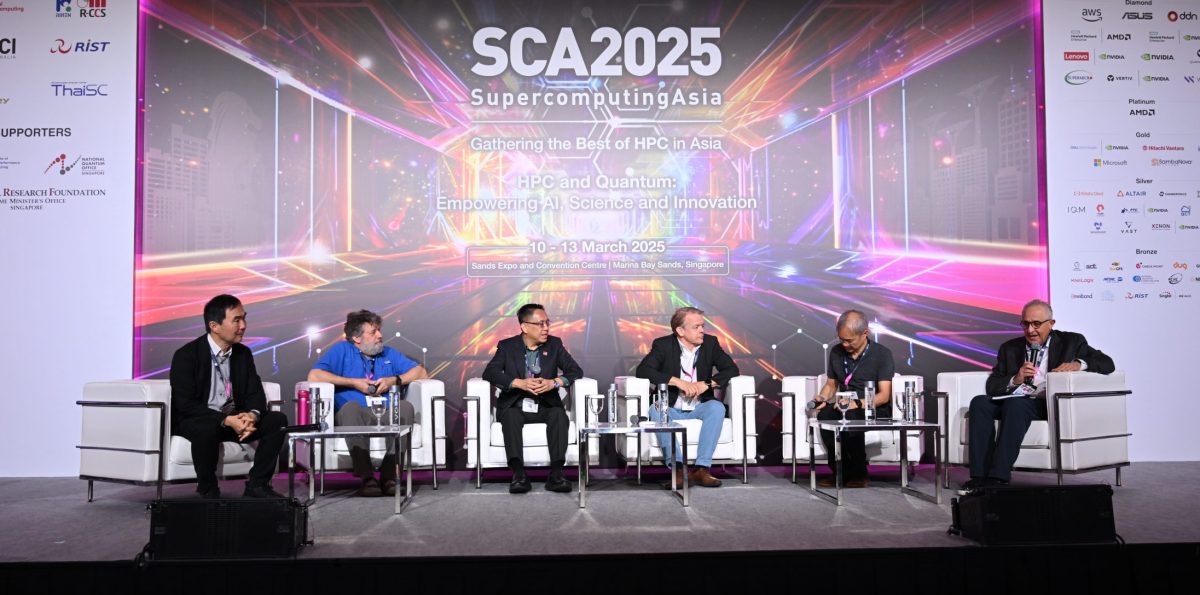1 Fusionopolis Way,
Connexis South, #17-01,
Singapore 138632
© National Supercomputing Centre (NSCC) Singapore. Updated as of 14 May 2024.
NSCC Singapore strives for products and services with the highest levels of security and reliability.
2025 HPC Users Symposium—Small Nations, Big Compute: Where Innovation Meets Purpose
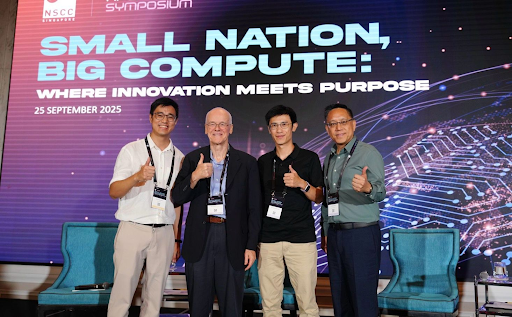

The 2025 HPC Users Symposium held this month provided a national platform for researchers and practitioners across Singapore to connect, share insights, and explore advances in high performance computing (HPC), artificial intelligence, and quantum technologies. Bringing together over 200 participants, the Symposium fostered discussions on the evolving landscape and opportunities in computational research.

NSCC Singapore’s Chief Executive, Dr Terence Hung, opened the symposium by outlining NSCC Singapore’s evolution from infrastructure provider to a strategic pillar for national research, anchored on three foci: enhancing HPC capacity and diversity, strengthening talent and user enablement, and driving operational excellence.
The symposium also saw the launch of NSCC Singapore’s new Communities of Practice (CoPs) — specialised groups in areas such as first-principles calculations, molecular dynamics, computational fluid dynamics, and AI. Beyond foundational training, CoPs provide a platform for experts and new users alike to share workflows, exchange expertise, and foster collaboration across domains. Complementing these initiatives, NSCC Singapore’s Frontier team continues to engage with users through HPC Clinics and one-to-one consultations to optimise efficiency and maximise impact.
Join the CoPs here
Explore the new NSCC User Guide, a central hub of resources and technical knowledge here

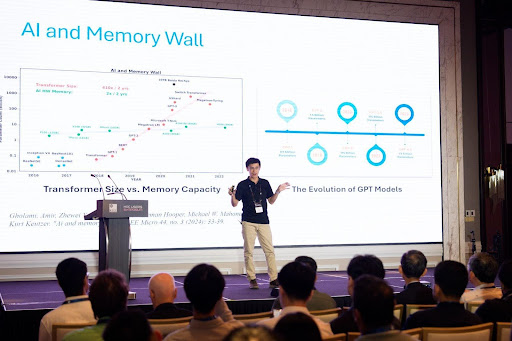
The keynotes set the stage for lively discussion: Prof Robert Morris highlighted “The Singapore Effect” in healthcare, emphasising how responsible AI adoption and Singapore’s small-nation advantage can accelerate innovation and improve patient outcomes, while Asst Prof Wang Chen underscored the importance of sustained infrastructure innovation to meet the surging demands of supercomputing growth.

Building on these insights, the panel discussion brought together Dr Terence Hung, Prof Morris, and Dr Wang to examine how Singapore can scale its national infrastructure, balance AI and scientific computing needs, and cultivate a vibrant HPC community that embraces emerging technologies.
The symposium’s technical programme showcased how high performance computing (HPC) is driving advances across science, engineering, and industry. Sessions on molecular dynamics highlighted atomic-scale discoveries in chemistry, biology, and virology — from chemical separations and DNA topology to dengue vaccine design. Quantum-focused talks demonstrated how classical HPC supports quantum circuit simulation, error correction, and neural quantum state modelling, underscoring the interdependence of quantum and classical computing.
Strategic tracks explored HPC’s role in scaling large AI models, advancing healthcare initiatives such as SIMFONI, and supporting hybrid quantum–classical approaches. Looking ahead, discussions pointed to exascale breakthroughs in fluid dynamics for decarbonisation, AI-driven weather nowcasting, and materials innovation. Collectively, the sessions reflected how Singapore’s HPC ecosystem is enabling interdisciplinary research while preparing for the convergence of AI, quantum, and exascale computing — reinforcing NSCC Singapore’s commitment to building a collaborative and capable HPC community.
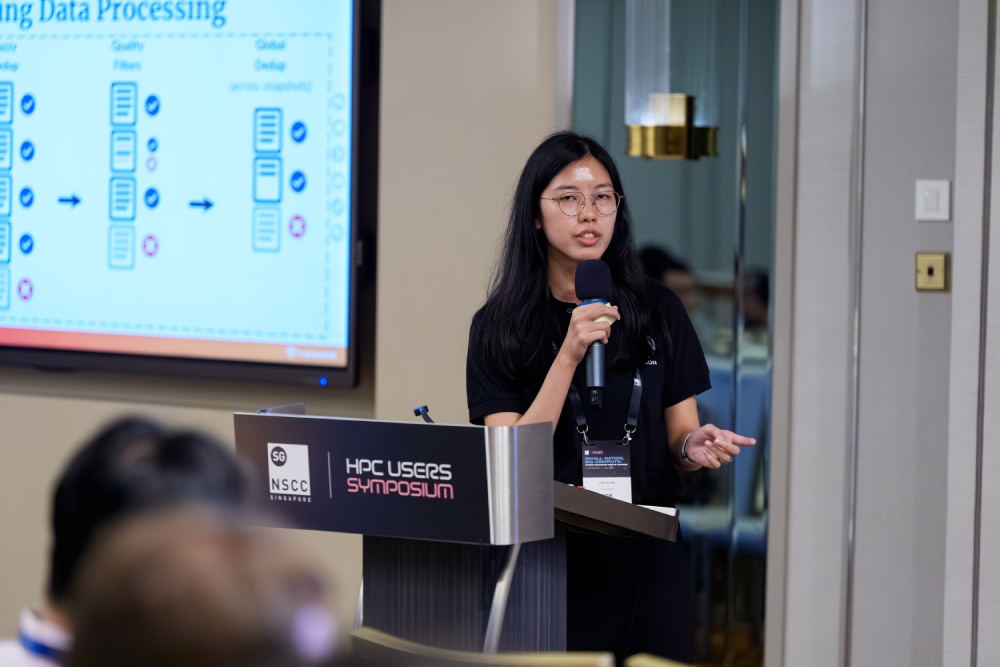
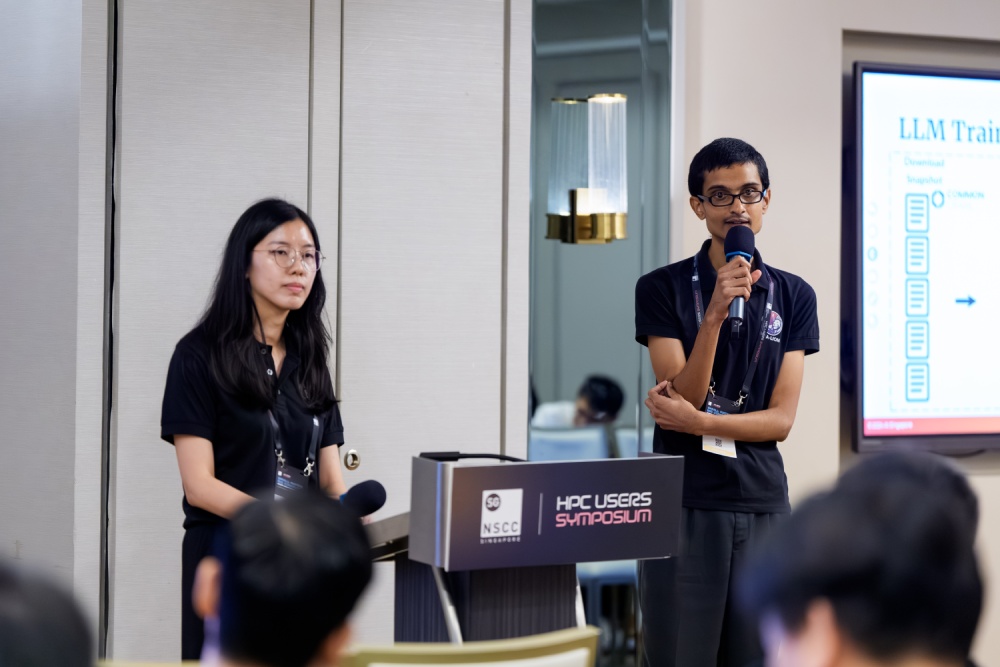
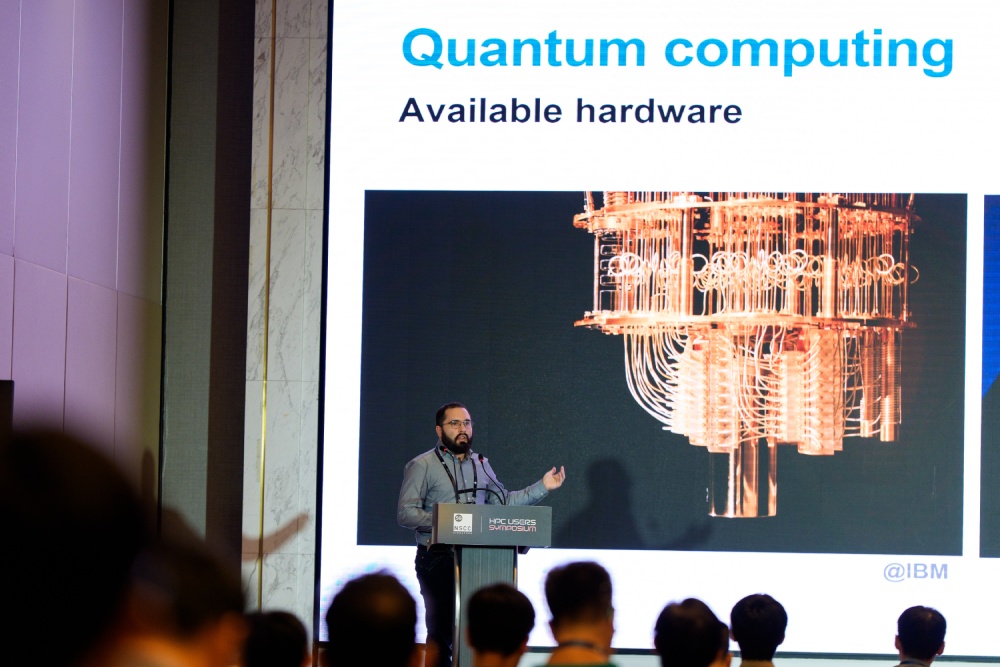
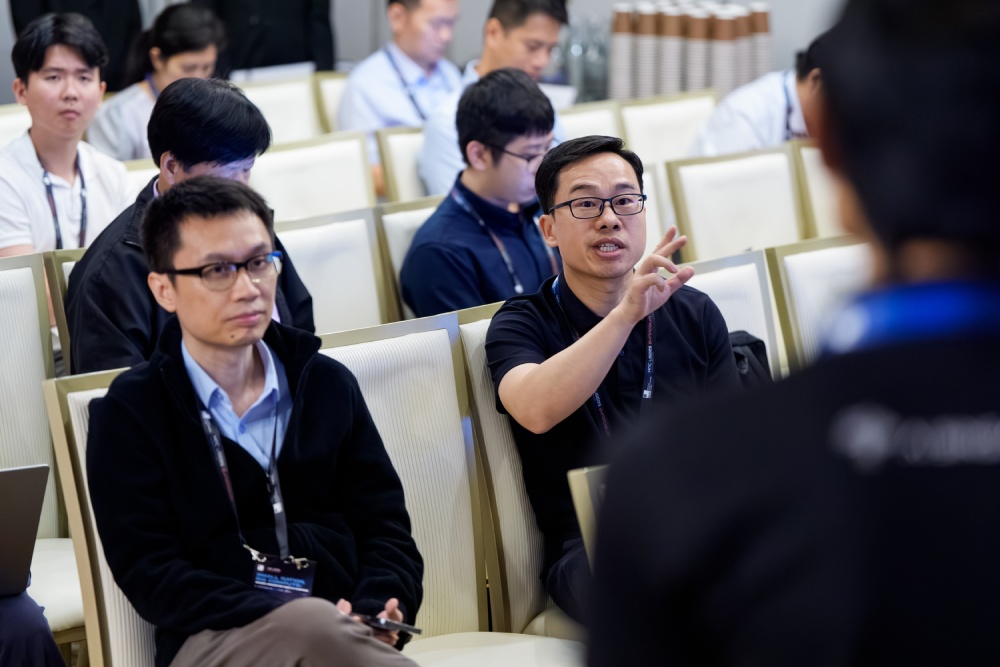
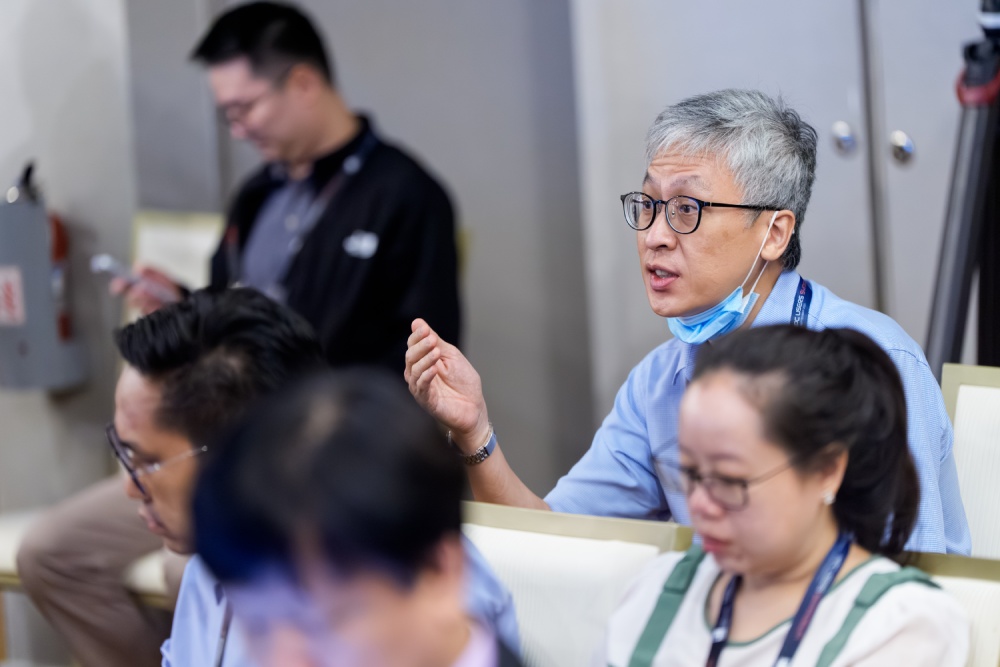
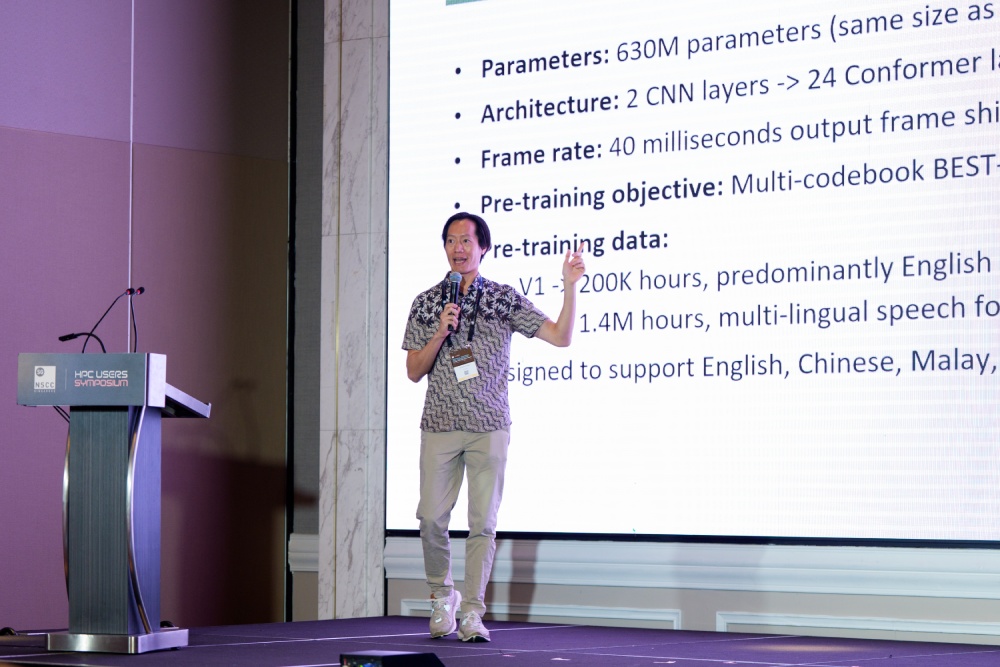
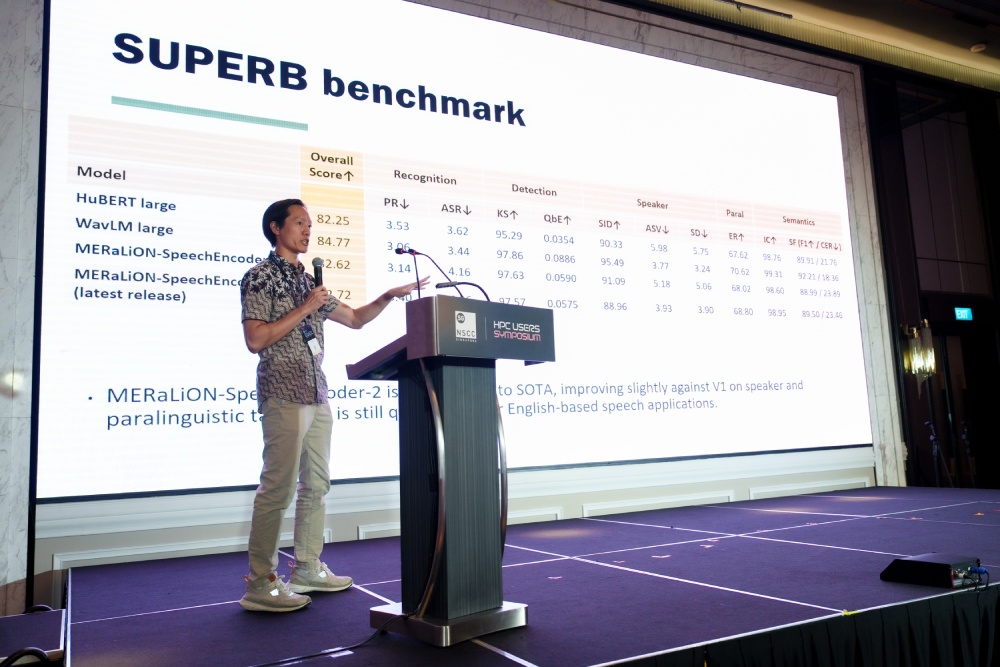
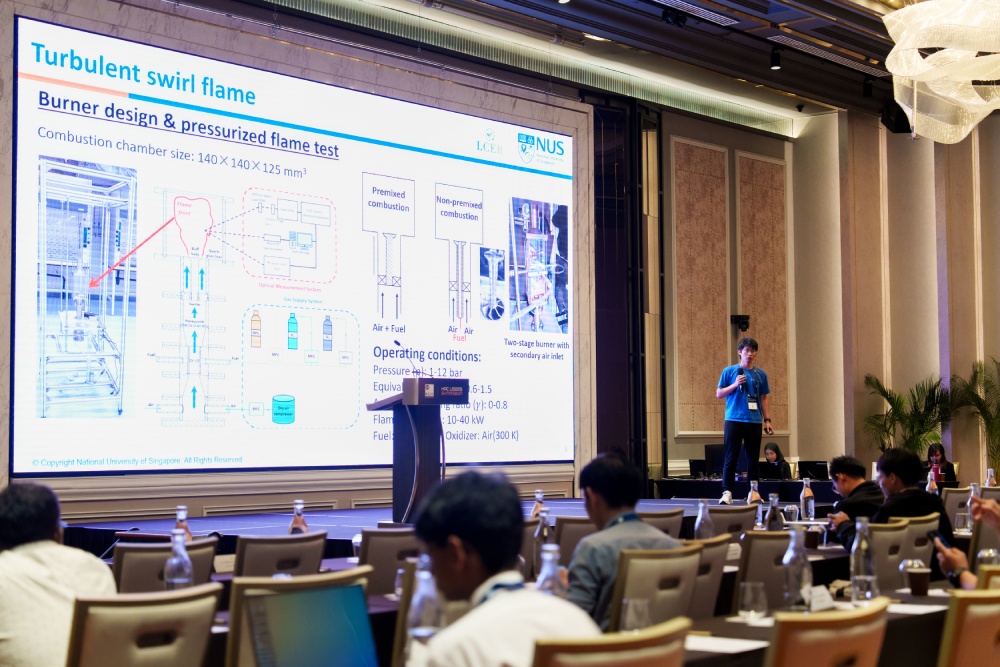
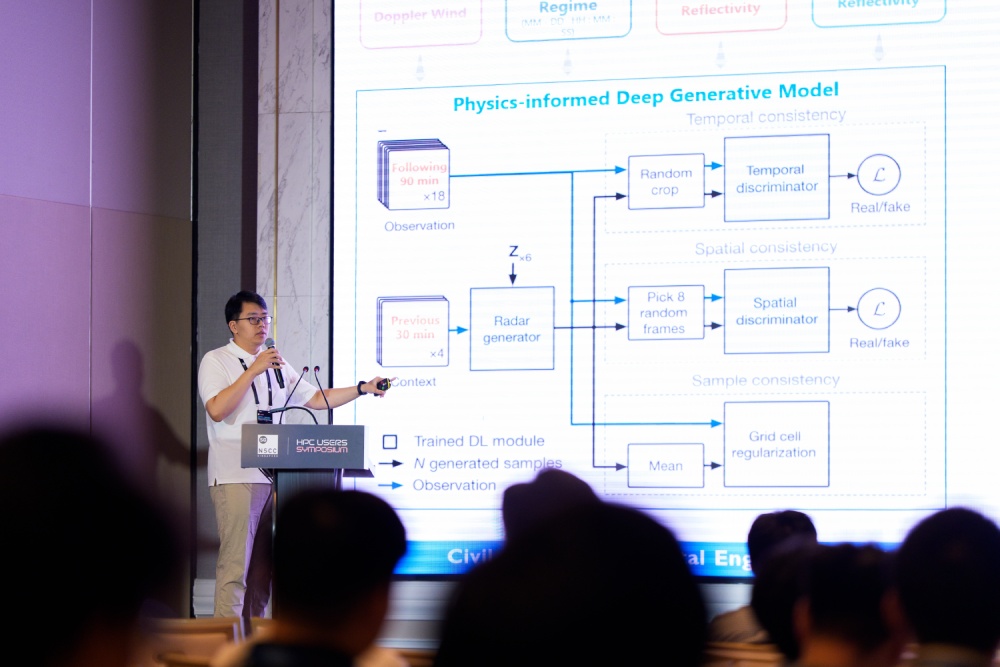
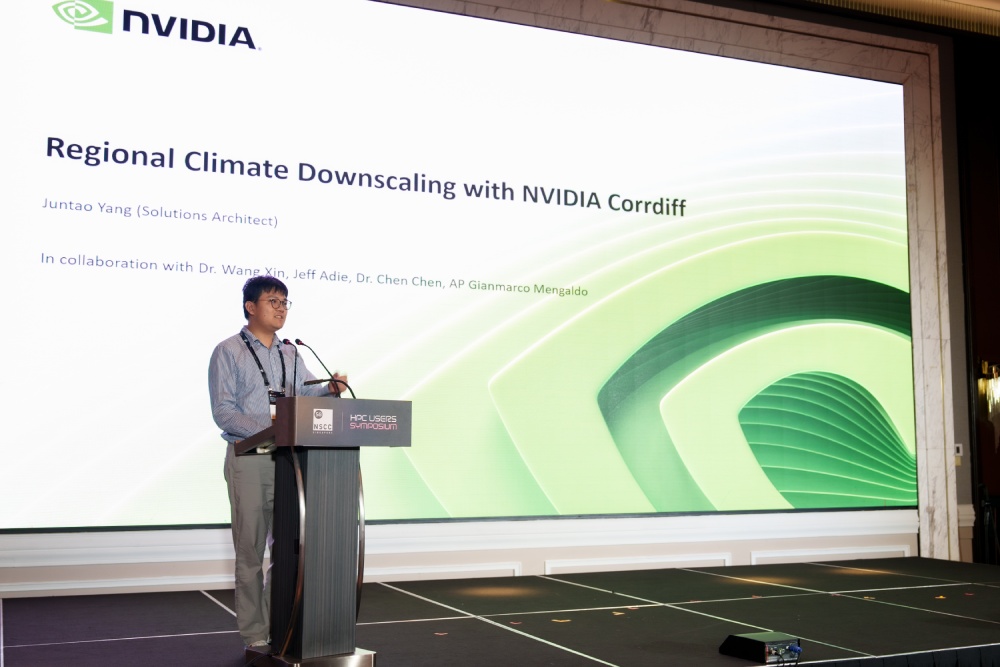
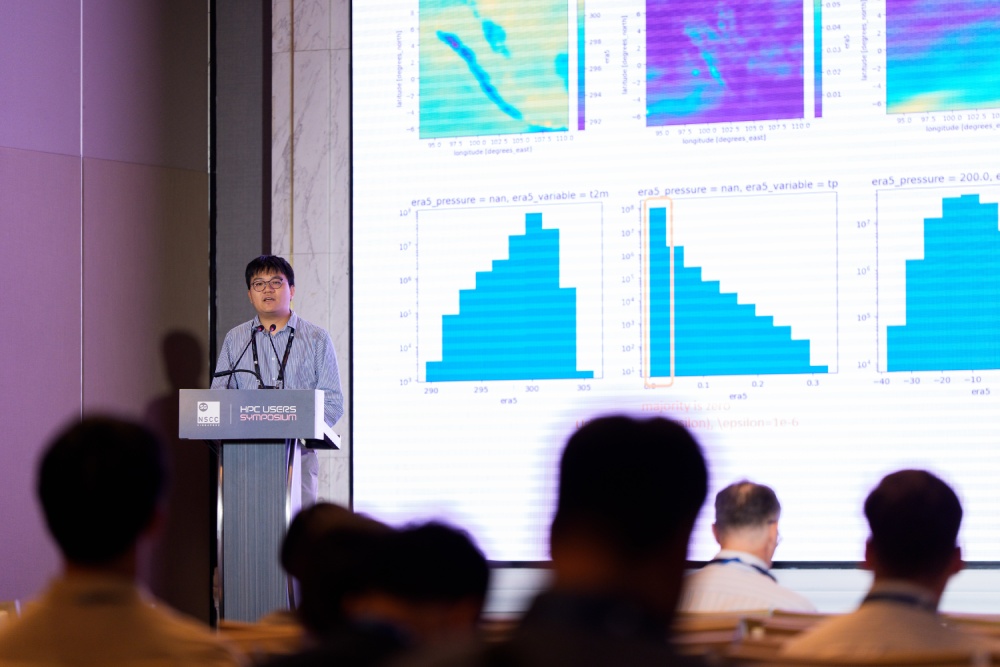
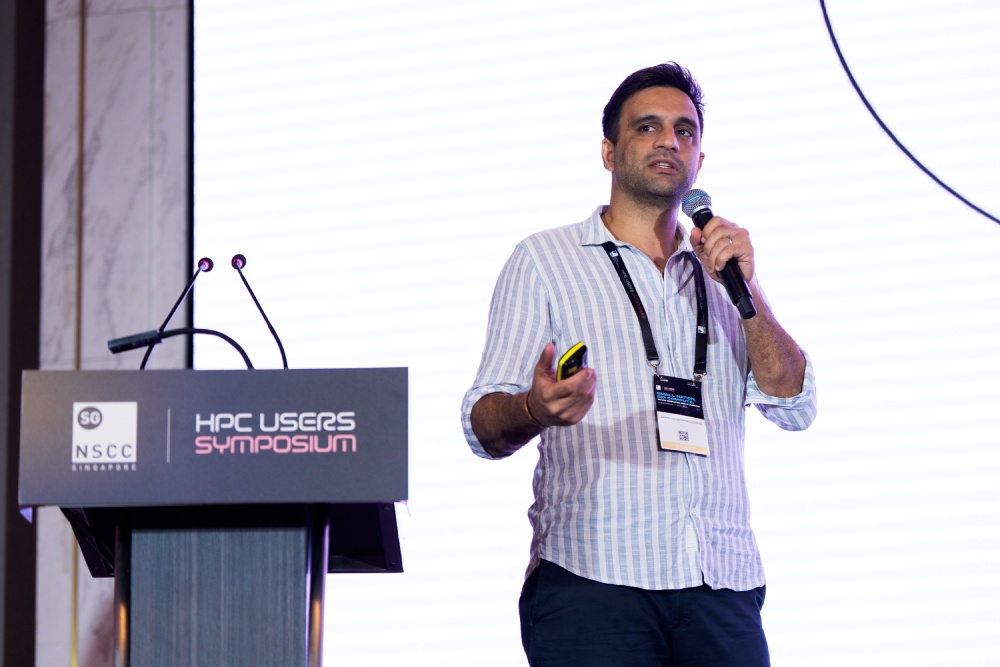
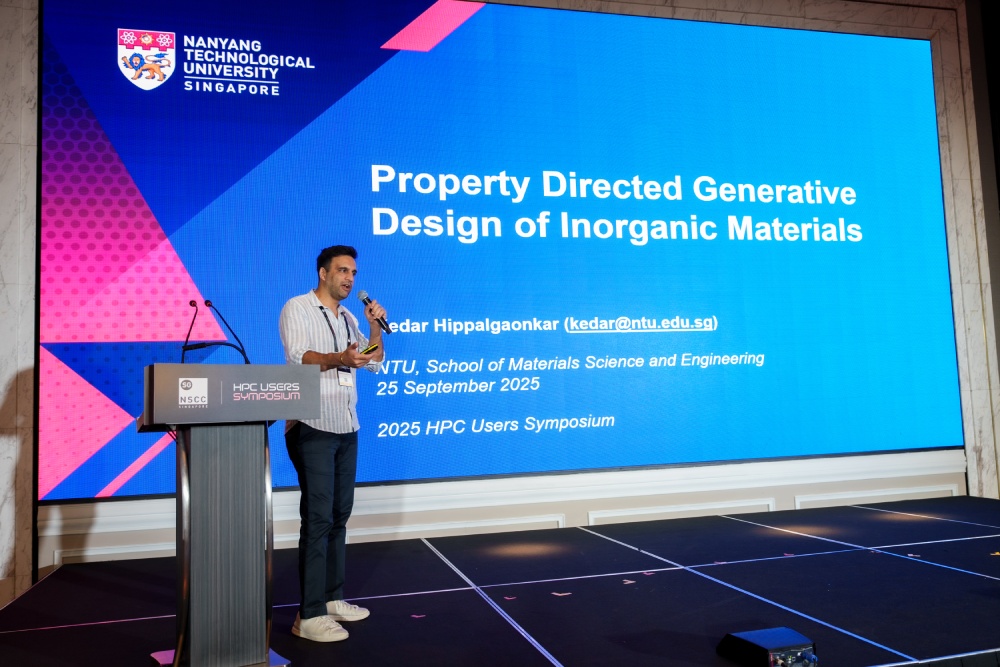
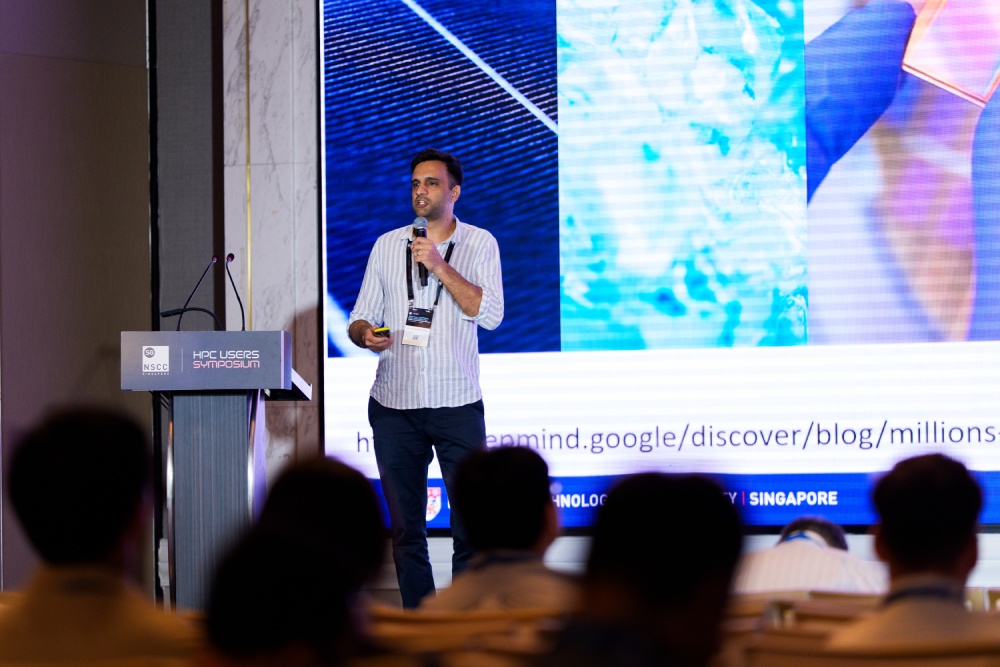
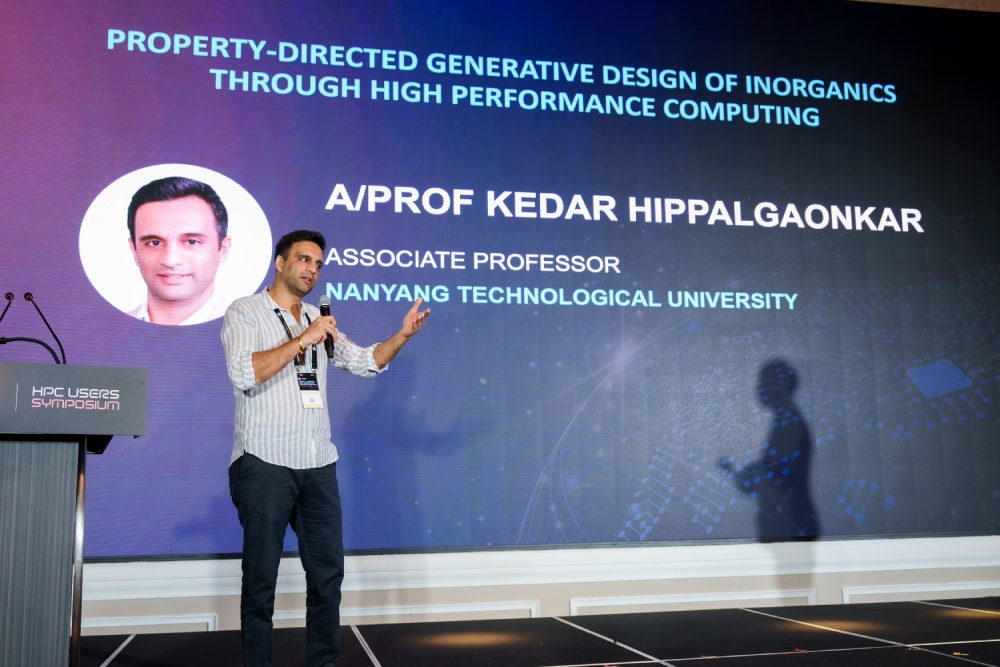
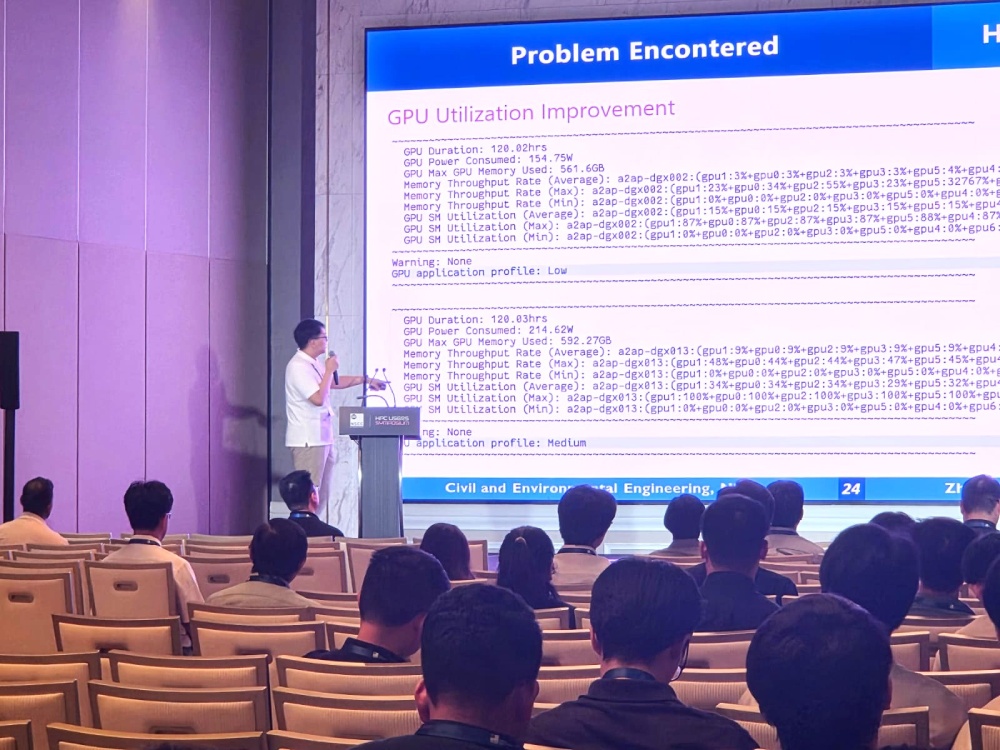
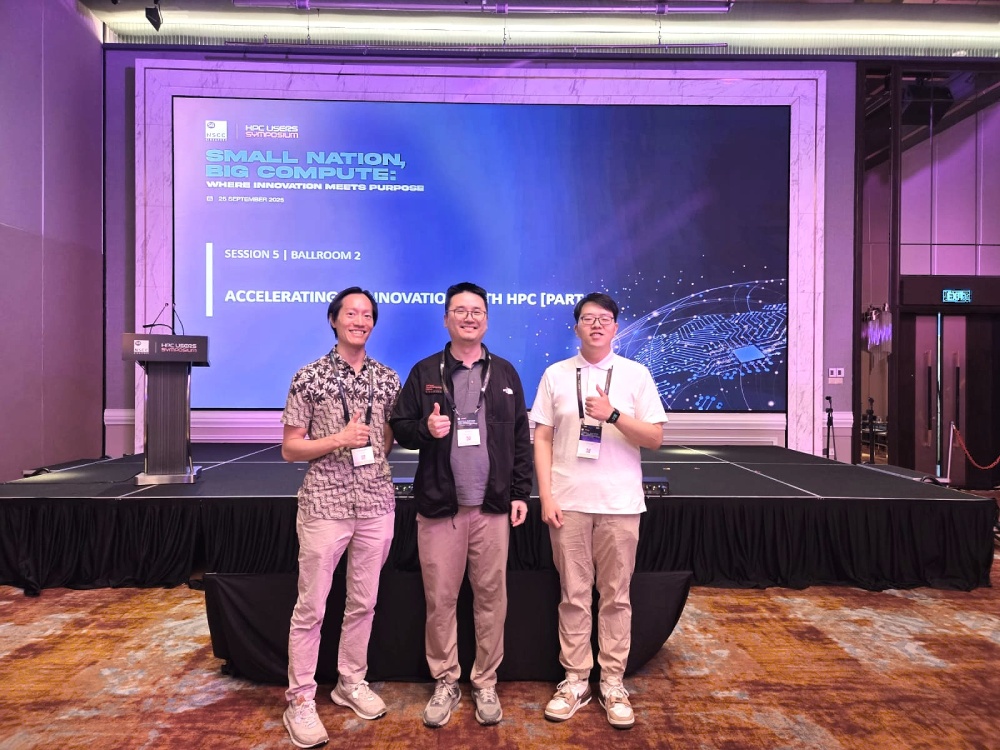
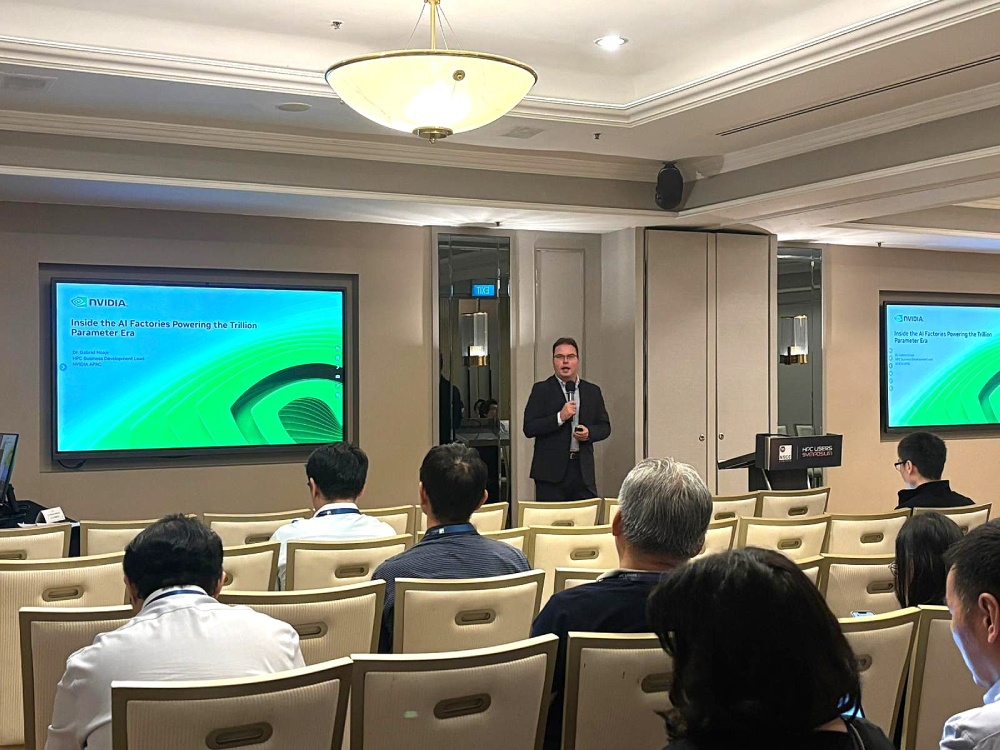
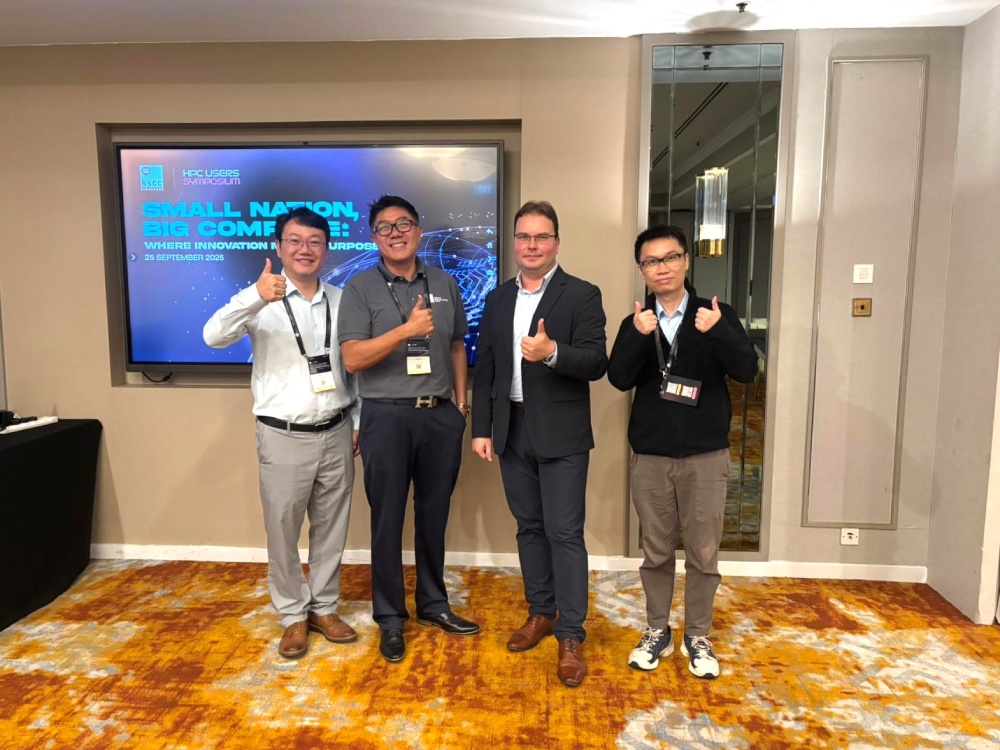
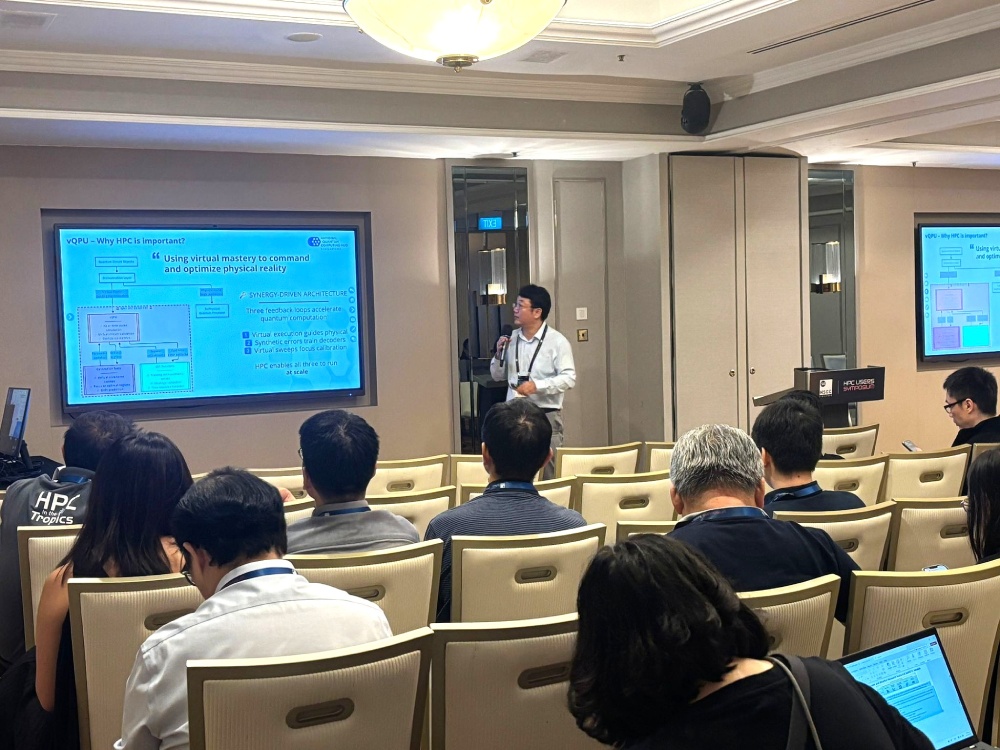
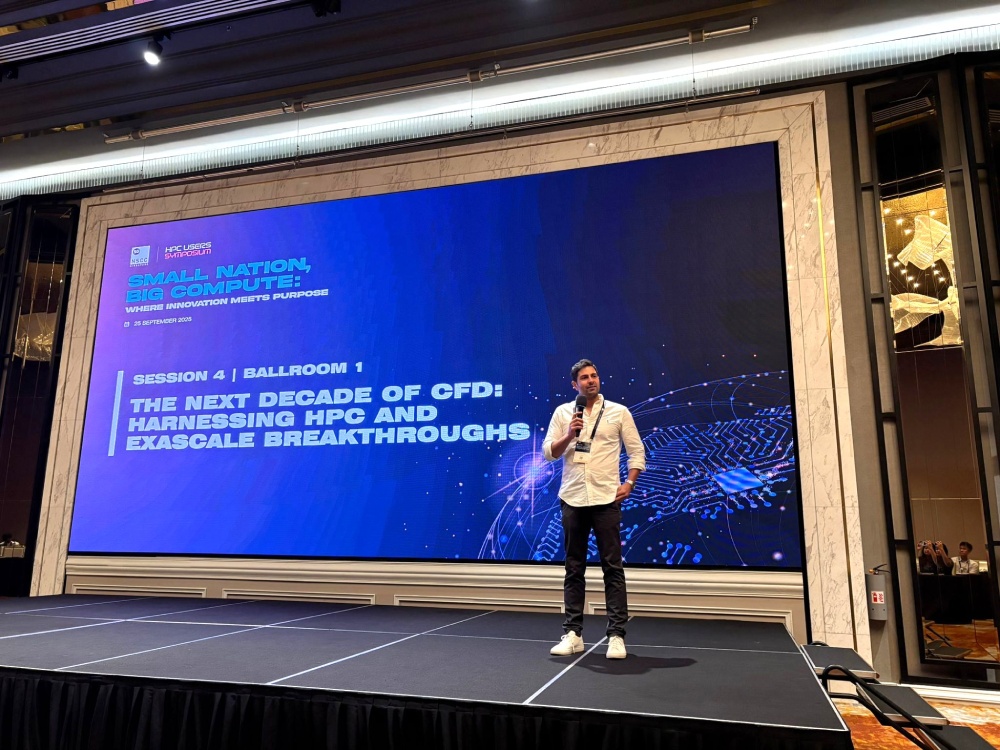
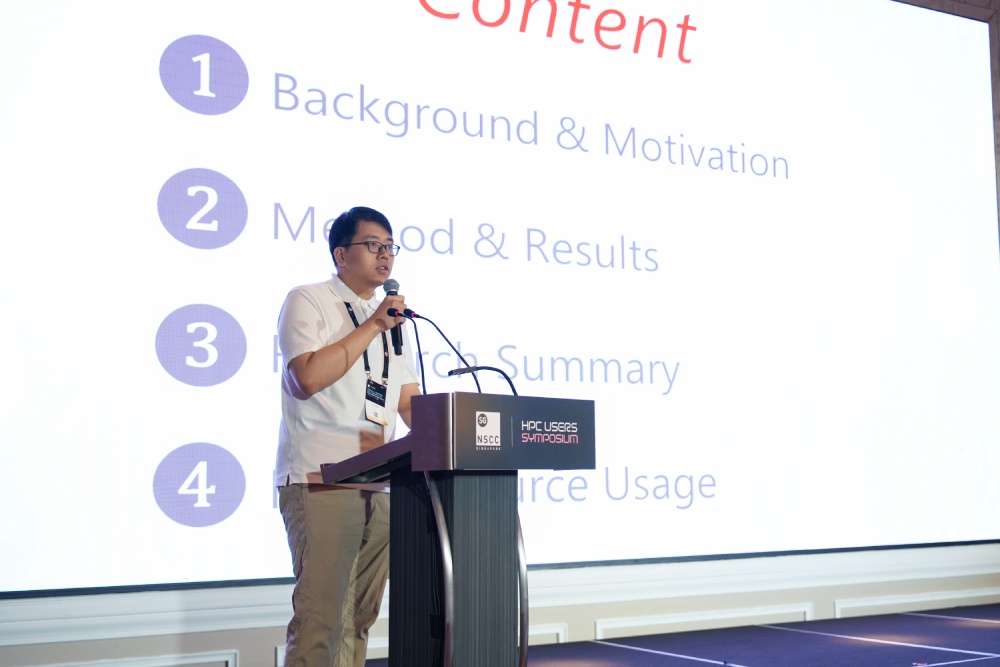
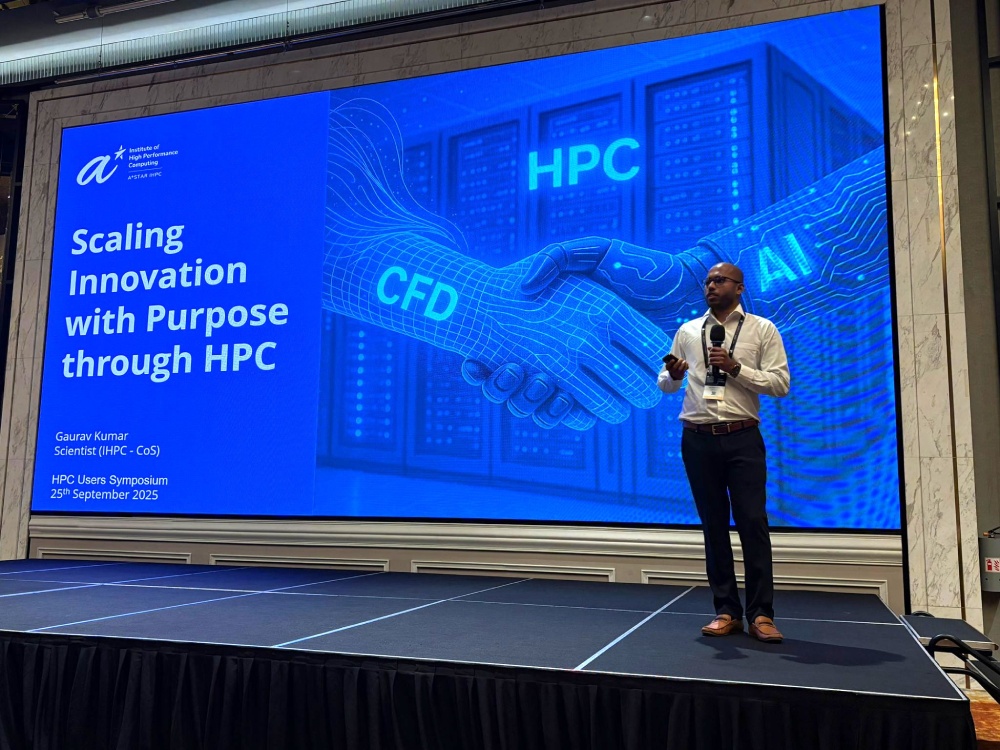
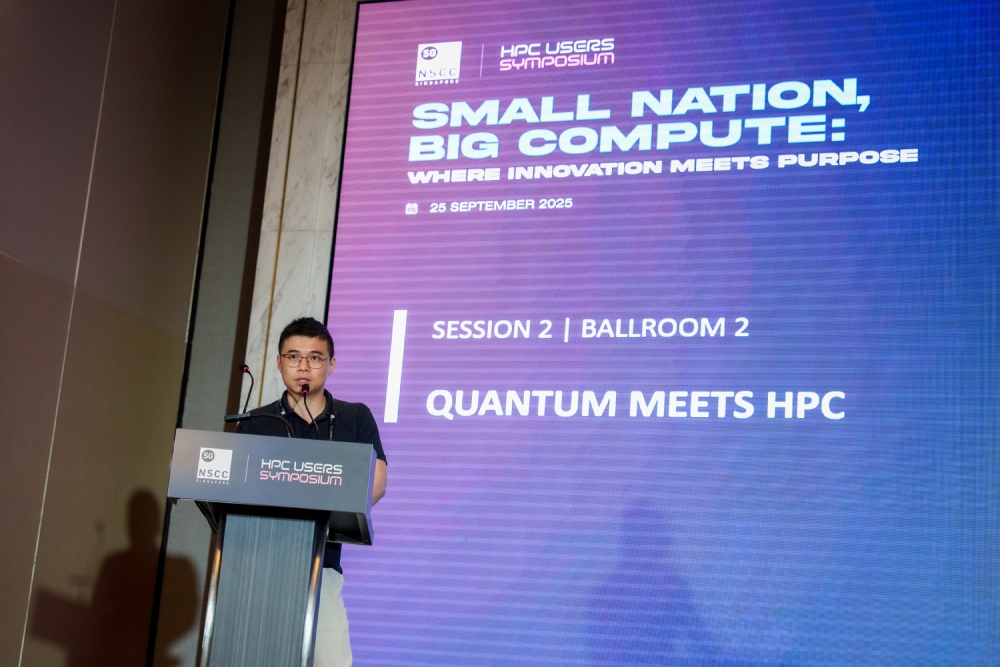
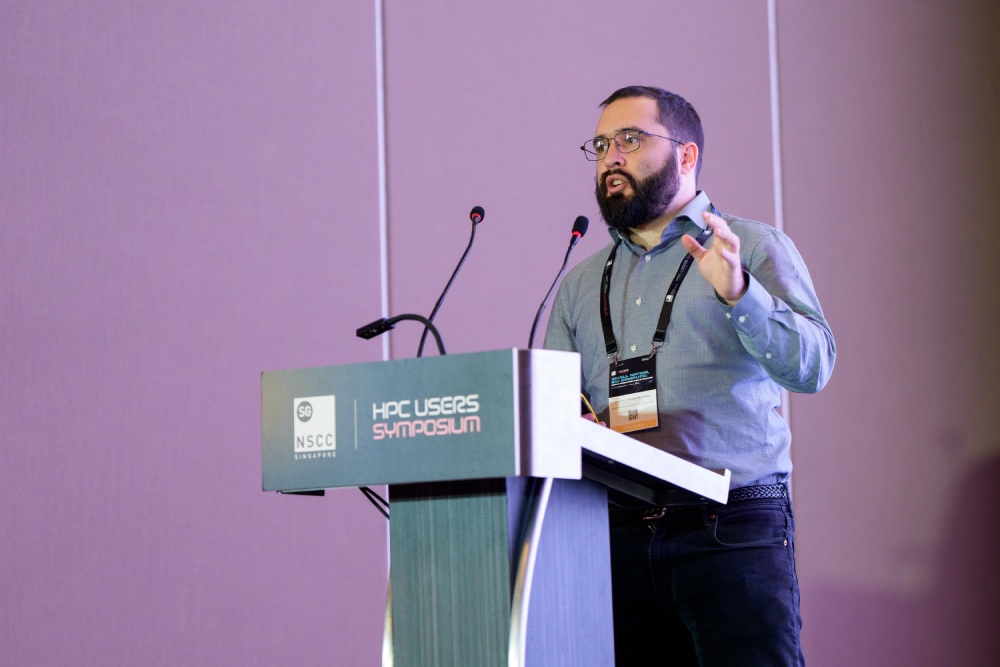
At the foyer, attendees actively engaged with three key booths—the Career & Talent Development booth, the Strategic Resource Allocation Policy booth, and the HPC Clinic—each designed to provide practical guidance and support. These touchpoints not only connected researchers with valuable information on policies, career pathways, and technical know-how, but also fostered meaningful conversations that enriched the symposium experience.
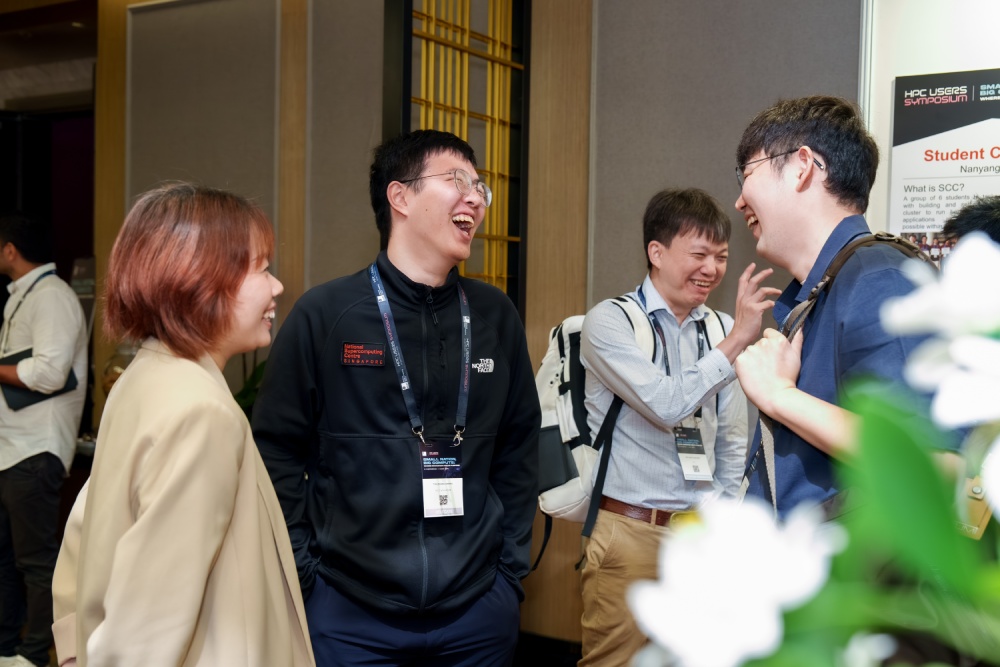
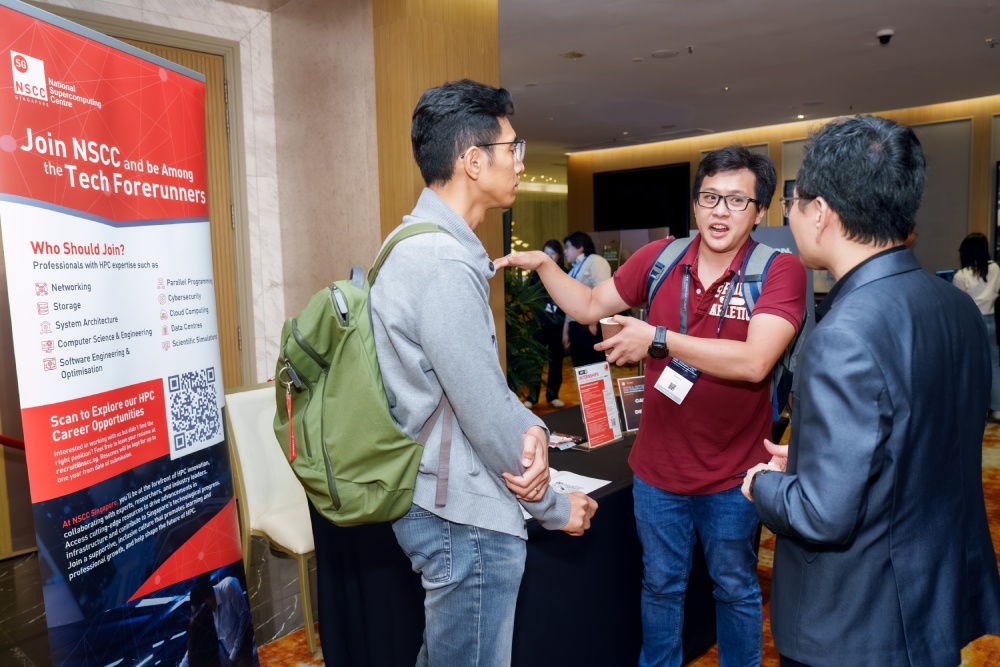
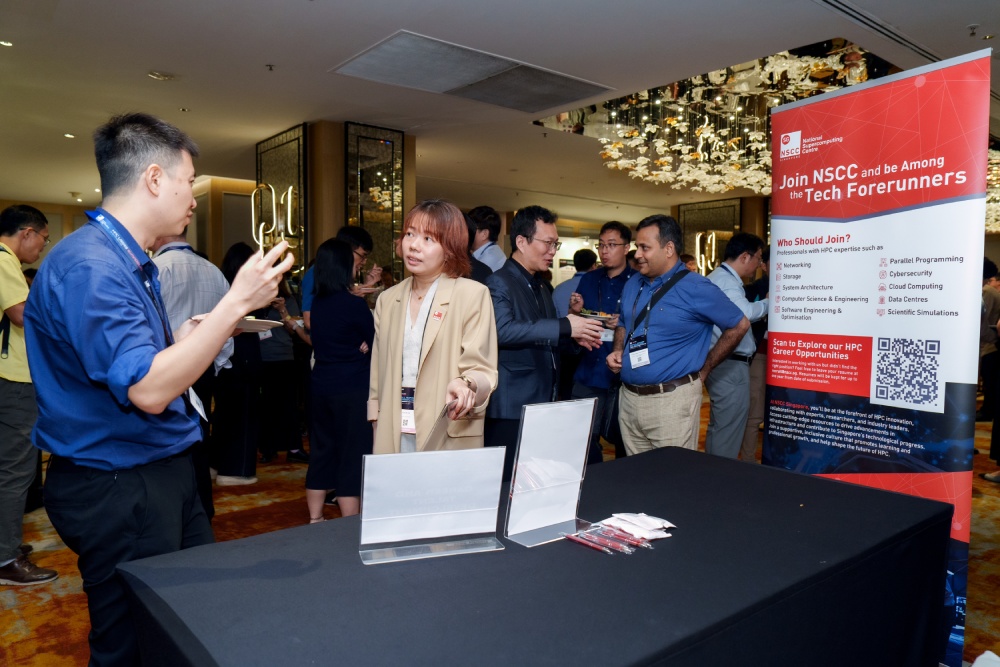
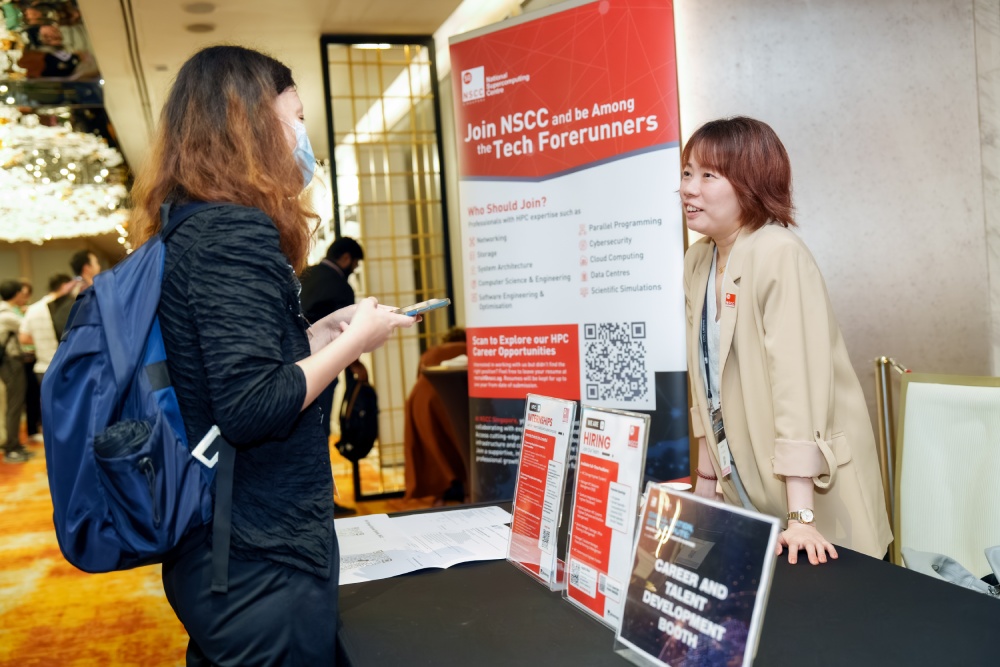
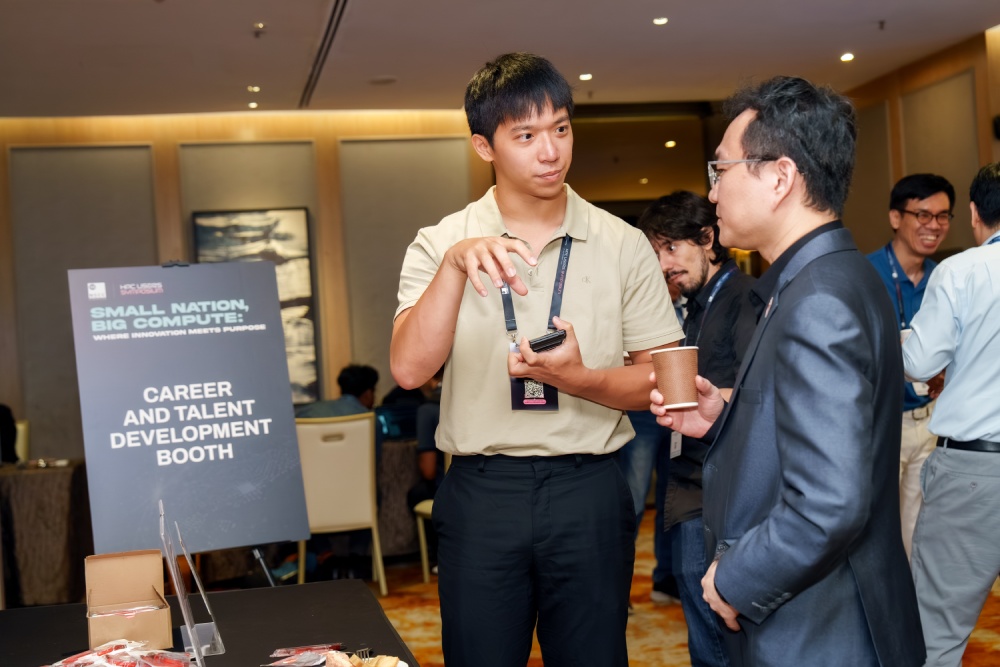
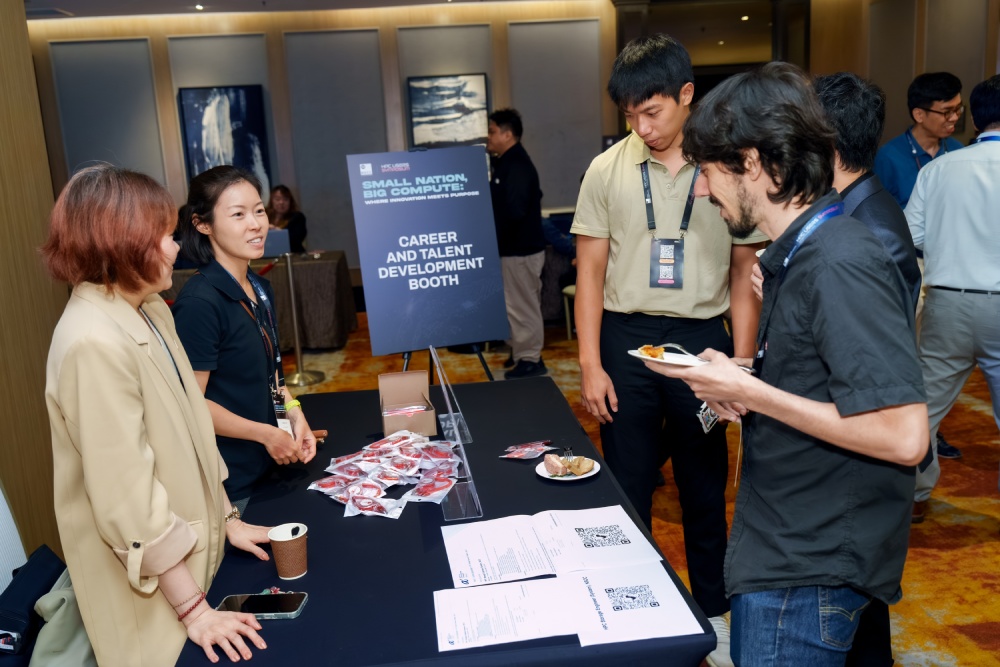
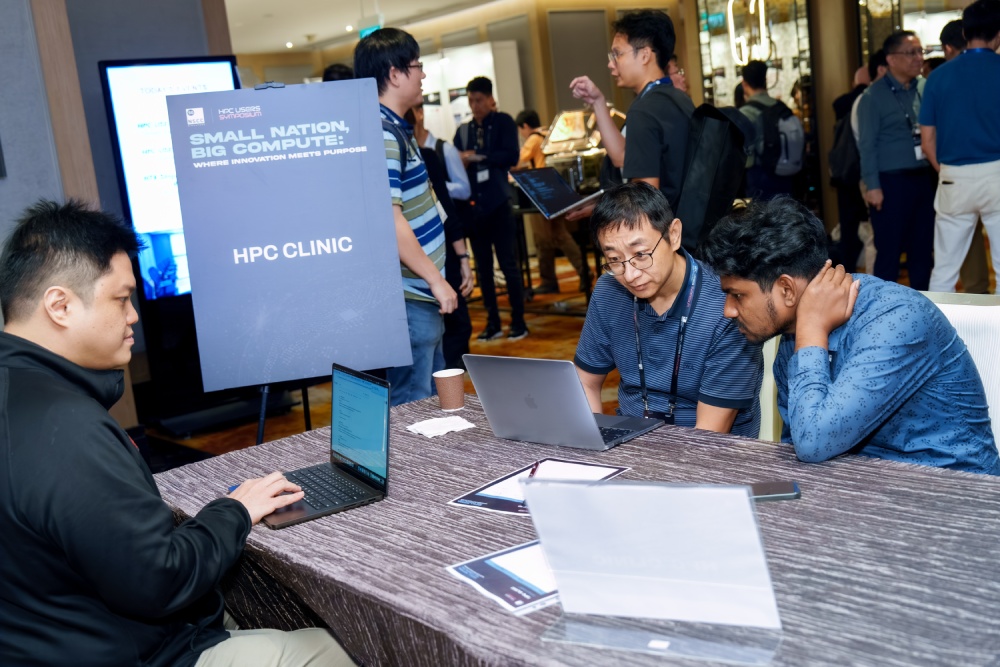
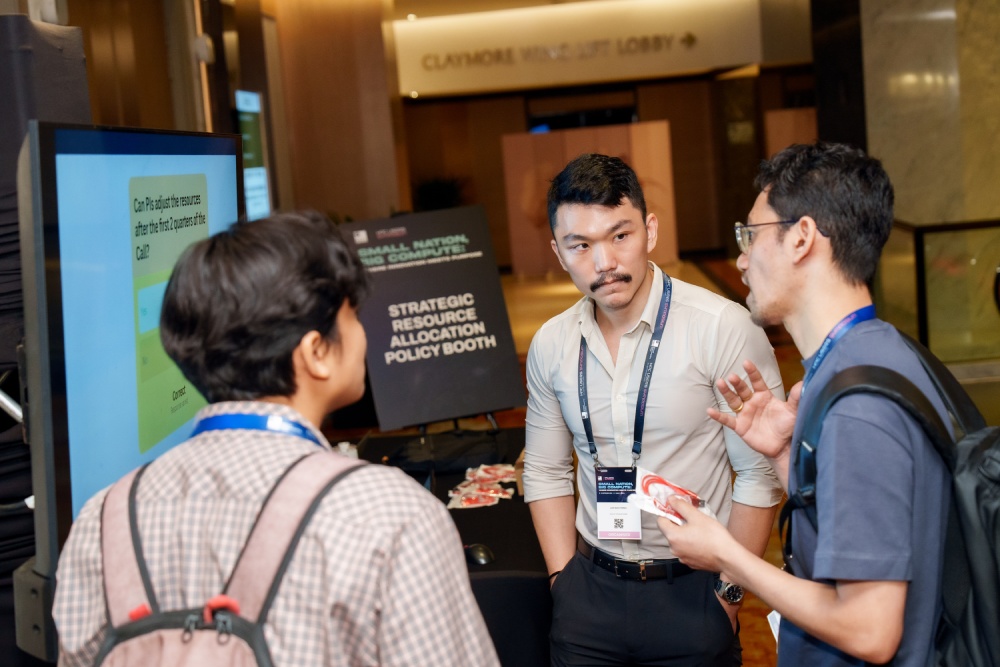
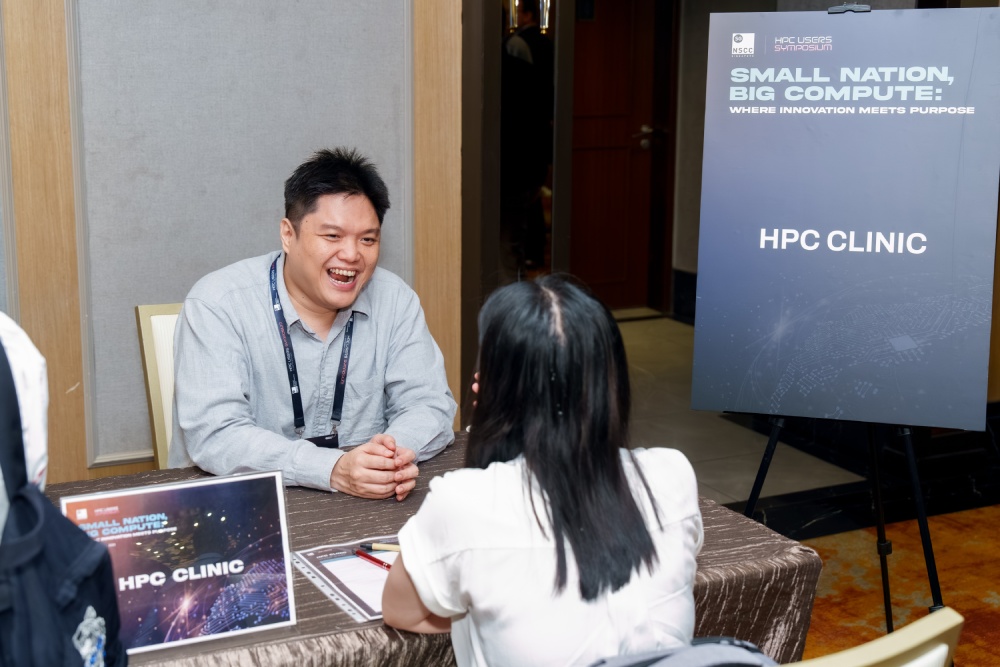
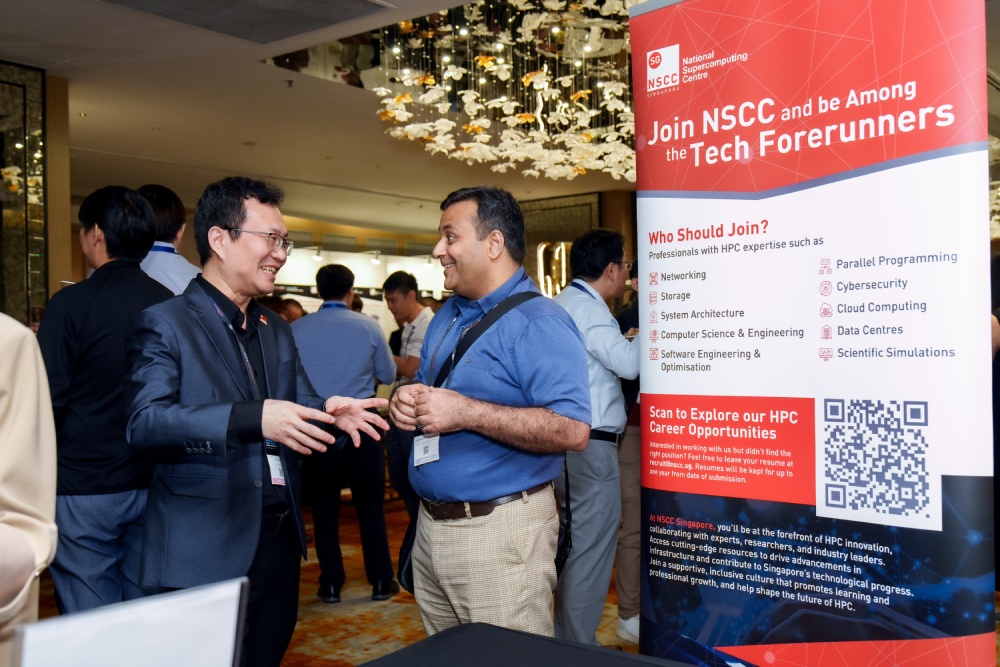
Stay connected with NSCC Singapore on LinkedIn for the latest updates on activities and announcements.

